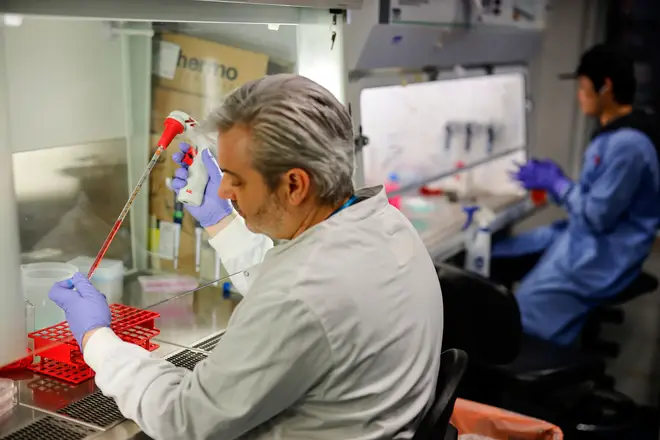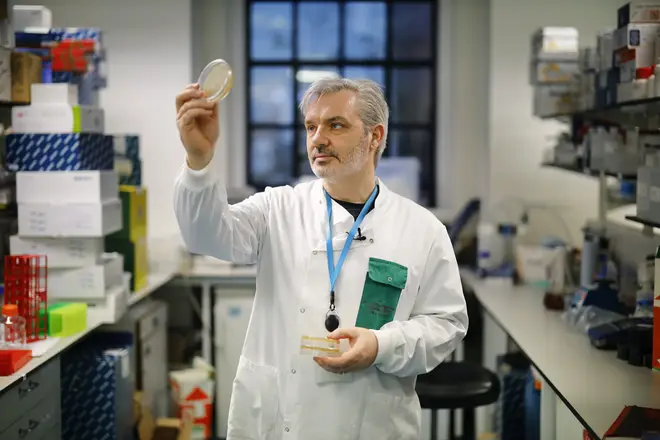
James O'Brien 10am - 1pm
11 July 2020, 21:35

The sickest coronavirus patients could be given lab-made antibodies to help them recover, a Government scientific adviser has revealed.
Professor Peter Openshaw, a member of the New and Emerging Respiratory Virus Threats Advisory Group (Nervtag), said the treatment currently being trialled could be a "very exciting”.
The monoclonal antibodies are based on those produced by patients who have recovered from Covid-19, The Telegraph reports.
British scientists are currently awaiting results of human trials for the treatment, which could be rolled out in hospitals if successful.
The drugs are among the first potential medicines dedicated to the virus amid warnings a vaccine could be many months away.

Prof Openshaw, of Imperial College London, said the treatment has the potential to circulate antibodies in the patient's bloodstream within half an hour.
He said that boosting the antibody levels of those in hospital with initial respiratory symptoms could prevent them developing “severe complications” that happen in a minority of patients.
“I think it's potentially a very exciting form of therapy and the field has advanced quite remarkably over recent years in terms of the ability to produce antibodies in factories or in labs in bulk, that would be necessary for such a treatment to work,” Prof Openshaw told the newspaper.

World Health Organisation calls on governments to unite amid coronavirus pandemic
It follows the rollout of Dexamethasone, an anti-inflammatory drug, for hospitalised Covid-19 patients requiring oxygen, including those on ventilators.
Health Secretary Matt Hancock hailed the successful clinical trials of the steroid drug last month an “astounding breakthrough” that could help “save thousands of lives”.
It comes as the UK’s ambassador to the EU Sir Tim Barrow confirmed that Britain will not join the bloc’s multi-million Covid-19 vaccine scheme.
He said in a letter to the European Commission that Britain would be left without a say on negotiations over price and manufacturers following Brexit.
The EU scheme is hoping to shore up supplies of potential coronavirus vaccines by making advance purchases should one become available.
In the UK, human trials of a potential vaccine are underway at London’s Imperial College and Oxford.